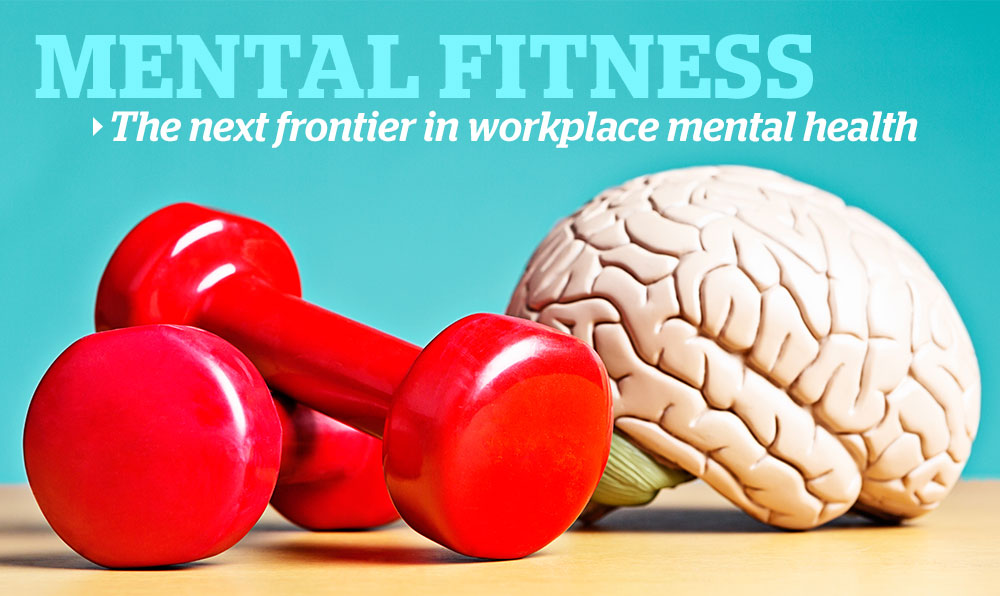

Features
Columns/Blogs
Mental Health
News
PSWA
Willpower alone may not be enough for successful mental fitness journey
By Bill Howatt

EDITOR’S NOTE: ‘Mental Fitness: The next frontier in workplace mental health’ is a weekly series, in partnership with Dr. Bill Howatt of Howatt HR Consulting in Ottawa. This series takes a deeper look at mental fitness — an approach to prevent mental harm and promote mental health.
The foundation of mental fitness is engaging in intentional behaviours that promote emotional well-being.
One way to establish those behaviours is by creating a mental fitness plan that involves prosocial behaviours like walking, meditation, journaling, music, and reading — promoting pleasant emotions.
Following a mental fitness plan requires the development of routines and habits. You can start slowly and gradually build up endurance, like starting with a one-kilometre walk and building up to five kilometres as a daily habit.
Wanting something to happen may not be enough. There is often a need to cope with slips and distractions that challenge our ability to stay focused on getting what we want.
Moving from a desire to reality is a process. We can increase our success by setting realistic expectations and accepting that having a plan to cope with challenging moments can be helpful.
Making something happen that you want to happen is not automatic. For example, you decide to go on a diet for the fifth time in three years, but it requires you to stop eating some of your favourite, feel-good foods.
Your challenge to stick to your diet is that these go-to foods feel like the best medicine when you are stressed. The consequence is you keep failing in your desire to lose body fat and a few pounds, creating more stress — and you know the rest.
Psychologically Safe Workplace Awards provide employers tools, data on mental health
Deciding not to eat unhealthy food may not be enough. The next and most difficult challenge is to resist the urge and craving for the unhealthy, favourite foods.
Getting on the right track starts with leveraging the brain’s frontal lobe (cerebral cortex) to prevent you from eating unhealthy food by stopping an old behaviour and starting a new one.
How successful you are depends on your capacity for self-control, often referred to as willpower. It is important to understand that if you want to change a behaviour, you must accept that willpower is not a long-term strategy.
A long-term strategy is when you can engage in a new healthy behaviour long enough for it to become a habit. However, willpower can help you focus on what you want.
Tips for leveraging willpower
Willpower can be a fuel and support until habits are formed by staying focused and not assuming willpower alone will be enough.
To leverage willpower to stop an old behaviour and start a new one, be clear on the following three questions:
Why do I want this outcome?
Tap into your core values and motivation. Doing something for someone else seldom gets the most out of your willpower.
Clearly knowing the benefits will help to fill the willpower tank. When you wake up each day, focus on your purpose to help delay the immediate gratification an old behaviour may have had so that you can concentrate on what you want.
What do I need to learn, or what support do I need to achieve this outcome?
Just because you want something, does not mean you have the knowledge and skills to achieve it, nor does it mean you need to do it alone.
Many people who want to lose weight benefit from organizations like Weight Watchers that offer knowledge, skills, and a social support system that encourages them to get through challenging moments.
Knowledge is power, as are social supports. These are the fuel that can help charge your willpower to stay focused on your goal until new behaviours become habits.
When should I start the actions to achieve my outcome?
Once you are clear on your desire, what you need to learn, and what support system you require, it is time to move from decision to action.
Set realistic expectations for when you will start and to pre-frame the concept that it is normal to expect some challenging moments.
Planning for when you may slip back to an old, unwanted habit is good preparation. This is not planning for failure; it is planning how to get back on track if failure happens.
Accept that it may take several months for a new habit to form and that the longer you practice, the easier it will be for a behaviour to become part of your daily routine.
 Dr. Bill Howatt is the Ottawa-based president of Howatt HR Consulting.
Dr. Bill Howatt is the Ottawa-based president of Howatt HR Consulting.
If there is a particular microskill or topic you would like to see Dr. Howatt write on that supports employees’ mental health in the workplace, please send your request to Talent Canada editor Marcel Vander Wier.
Print this page